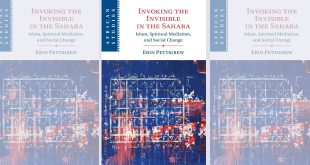Hijab-wearers are appearing everywhere from fashion chains to the Great British Bake Off – it’s a celebration of the diversity of Britain and good news for ordinary Muslims.
Muslim women in hijabs are becoming increasingly visible in the public domain, whether appearing in EastEnders, Android ads, or The Great British Bake Off. Twenty years ago, when I began wearing my headscarf, “hijabis” were a rare sight, but now this contentious yet innocuous piece of cloth is shaping the face of mainstream pop culture.
A social media favorite has been hijab-wearing Great British Bake Off (GBBO) contestant Nadiya Hussain, who has galvanized public support with her brilliant flavors, expressiveness and warmth, with many canvassing for “Nadiya as Bake Off queen”.
Comments such as these indicate a much-needed shift in attitudes towards Muslim women. As a strongly politicized sign of religious identity, the hijab has been subject to a complex debate in recent years, with some viewing it as a feminist symbol of liberation, while others disdain it as a symbol of oppression. When I began to wear a headscarf, one friend split no hairs, telling me I was bending to “male enslavement”.
The hijab may have been dressed up by some as being “at odds with society”, but the fact that it is entering popular culture is in itself a celebration of the religious freedoms and universal values that Britain prides itself on.
The current visibility of hijabis is even more pertinent in light of the current wave of anti-Muslim attacks. TellMAMA, an independent organization that monitors Islamophobic attacks in the UK, recently reported that about 60% of those on the receiving end of anti-Muslim attacks were women – women in hijab being an “easy target”. According to a BBC report, some women have been punched, kicked, spat at and had lit cigarettes thrown at them, even when with their young children.
Attacks such as these, which seem to be fed by negative media stories, render the decision by H&M and others all the more vital – it’s a move that refuses to buy into the current political discourse and turns the perception of hijab on its head. Featuring women in this way is something I find empowering, and confidence boosting, and it nurtures that old British Muslim sentiment of “belonging”. I hope it will render Muslim women less “them” and more “us” and will promote a shift from a minority complex to a majority mindset.
It feeds into the reality that whether we are theist or agnostic, white or black, butcher or baker, we are, and should be, striving to be part of – brace yourselves – a diverse, multi-faceted, thriving society.
The views expressed in this article are those of the author and not necessarily those of Ijtihad Network.
 Ijtihad Network Being Wise and Faithful Muslim in the Contemporary World
Ijtihad Network Being Wise and Faithful Muslim in the Contemporary World
